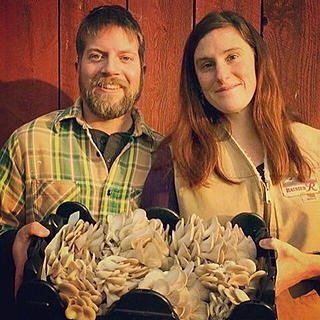How Mushrooms Can Help Us Travel and Colonize Space
- Mr. and Mrs. McKee
- Aug 13, 2018
- 2 min read
This is an excerpt from our essay submitted to a contest by the Planetary Society:
AI programing capabilities could be used to incubate, maintain, expand and apply mycelial life to the colonization and space travel challenges and requirements. Mycelium offers the capability of growing from simple carbohydrates, minerals and humidity to provide shelter, clothing, insulation, food, biofuel and preventative medicine. AI could simply be programed to monitor and nurture the basic mycelium stages, and then expand the fungi into the direction required for the mission using basic 3-D printing technologies.
Shelter, including insulation, can be grown with an additive-printing technology carried out by AI. Mycelium based structures offer durability, custom shapes for a wide array of designs, and offer the particularly interesting trait of radiation shielding. Bricks, braces and also thin sheets of structural materials can be formed and grown from incredibly simple ingredients under basic environmental conditions required for life.
Clothing can also be engineered from the mycelium fibers, providing a comfortable, flexible and durable textile. Sleeping bags, socks, gloves, blankets, hats and other gear designed for warmth can also be created and customized. Luggage, shoes, baskets, and thicker leather-like fabrics can also be manufactured in a similar way. These products could be easily composted and converted into another useful product later on after their long use by astronauts and colonists.
Food and preventative nourishment are critical components to consider about including Mycology in space travel and colonization. Mushrooms, the fruiting bodies of mycelium, offer critical nutrients, pleasant varieties in texture and color, and also the savory umami flavor to the human diet, as well as offering a sense of well-being and vitality. Some degenerative diseases, such as dementia and some cancers, are proven to be prevented with mushrooms as part of the regular diet or as a double-extract tincture. Skin-hydrating lotions made from mushrooms could also benefit the astronauts and colonists. In short, designing with AI to grow agriculturally will benefit the health and longevity of everyone involved.

Artwork by Deviant Art
The extraction of a bacteria from the spent substrate the mycelium grows on could convert biomass directly into 100% butanol, which is a superb biofuel. The substrate bags are a natural byproduct of modern mushroom cultivation, therefore the supply of this bacteria will be consistent. The biomass could be similarly manufactured as a byproduct of other crops, including the grains and their stalks (like sorghum or oats) that the mycelium grow well on. Therefore, AI technology could be programed to monitor and manufacture butanol while traveling through space or colonizing another surface.


























Comments